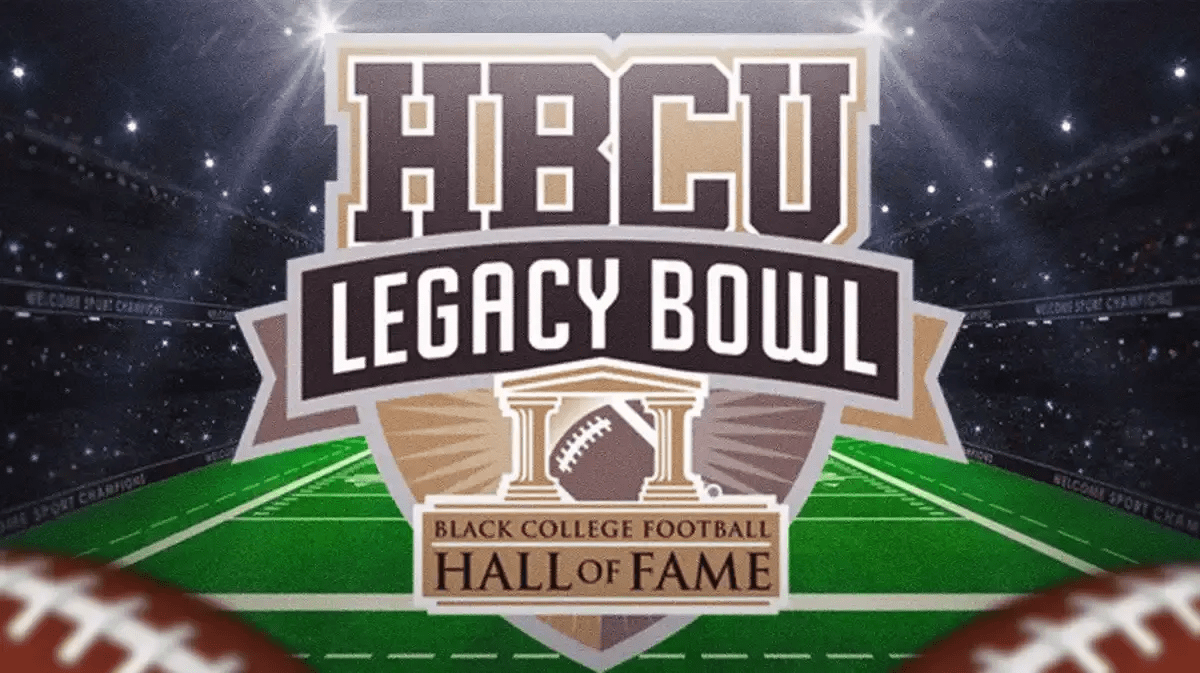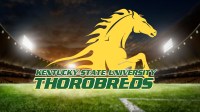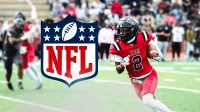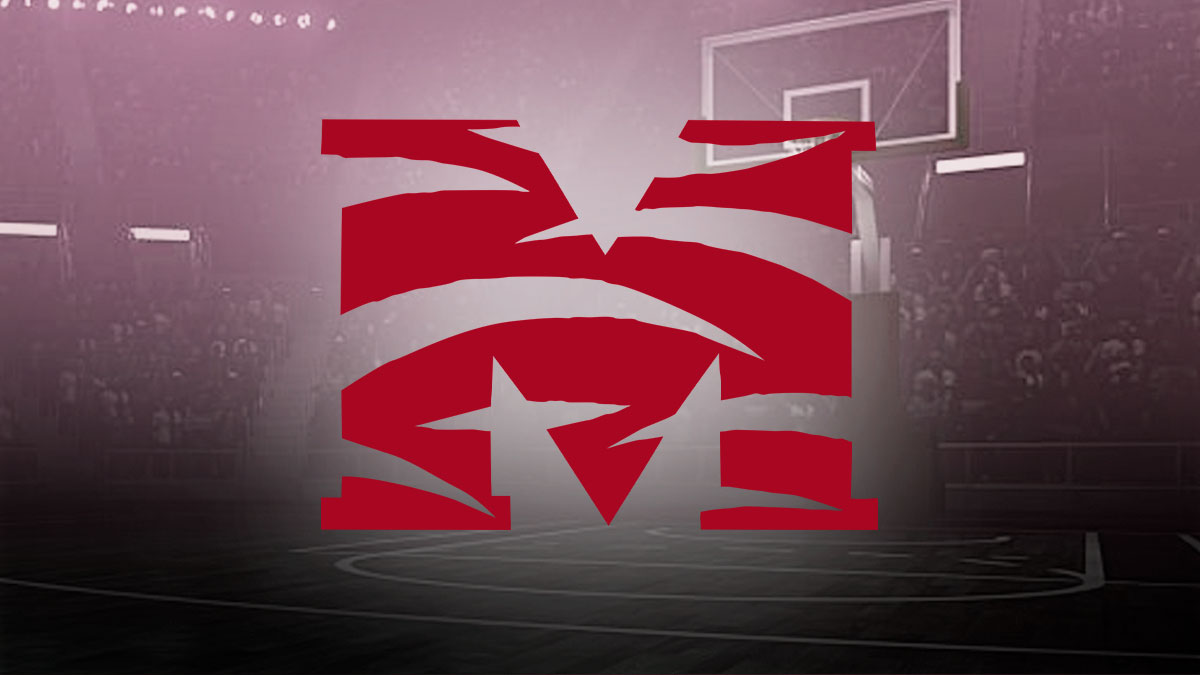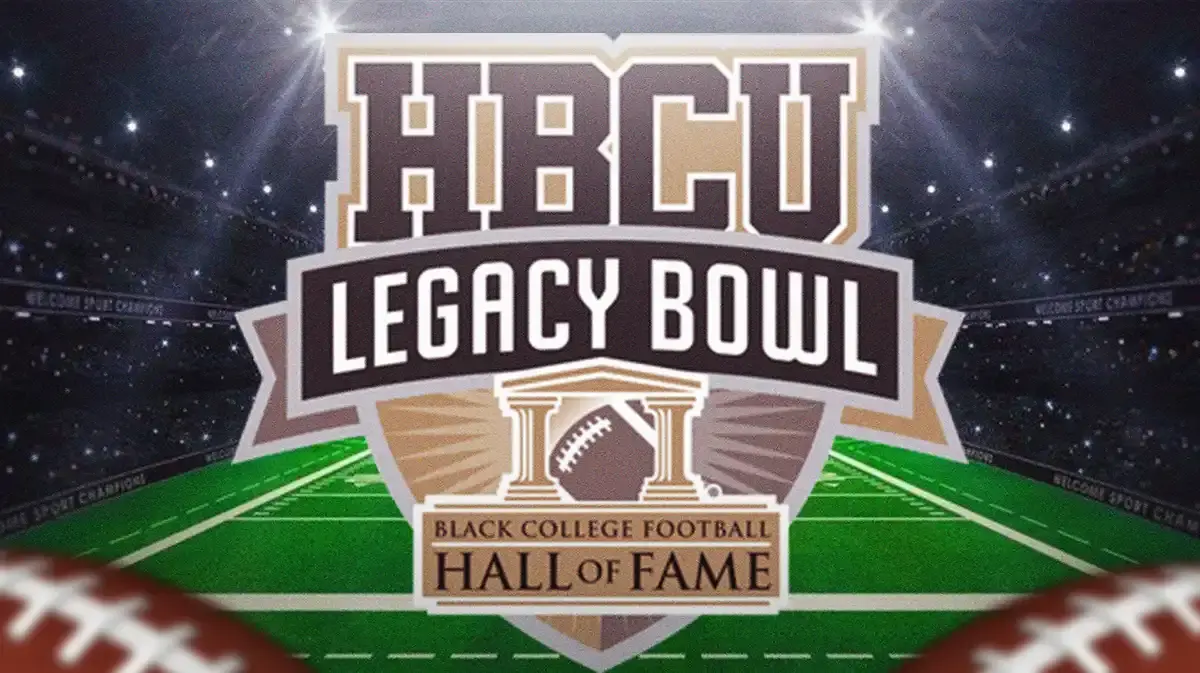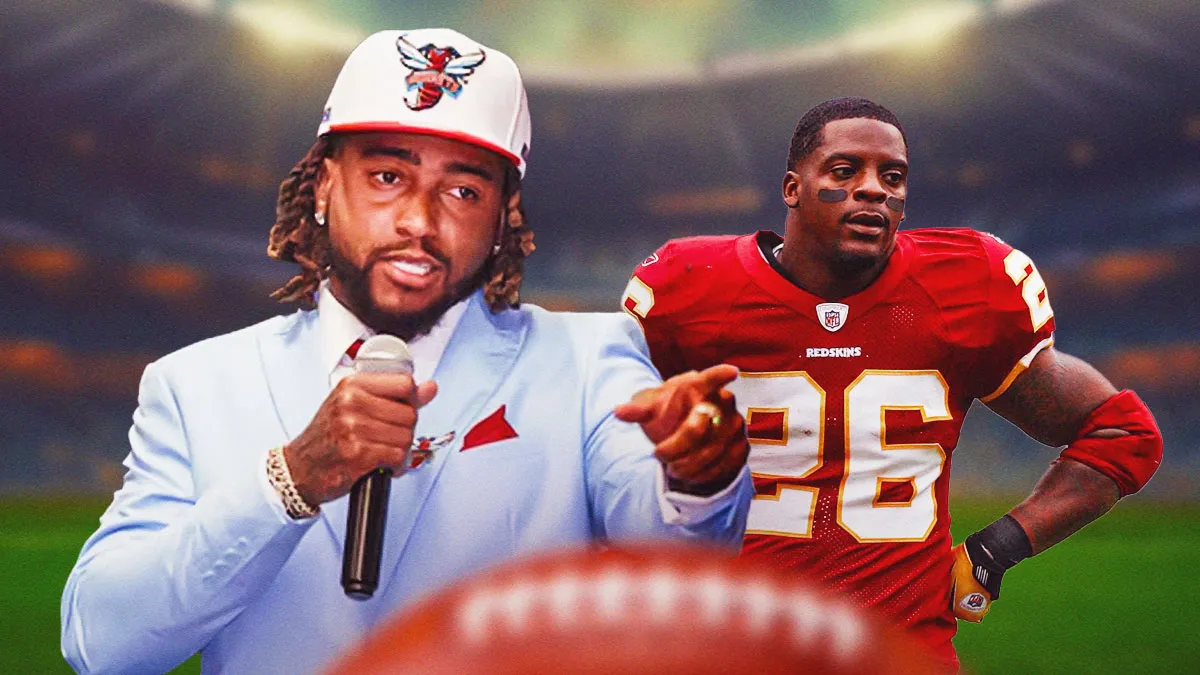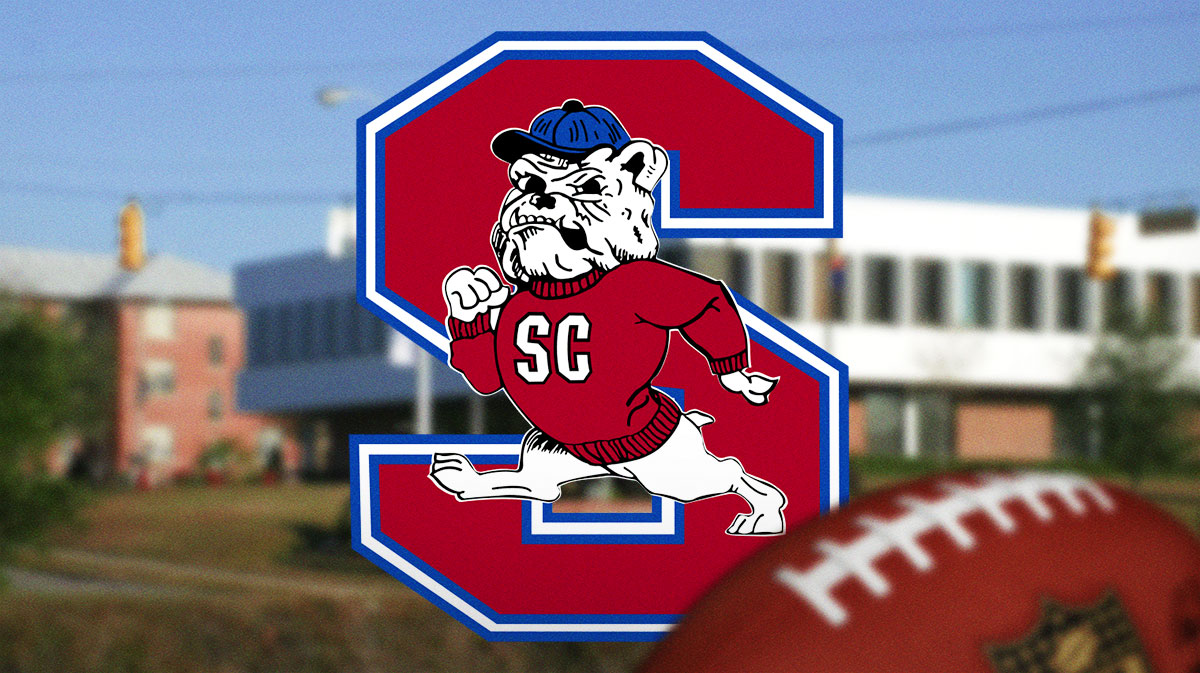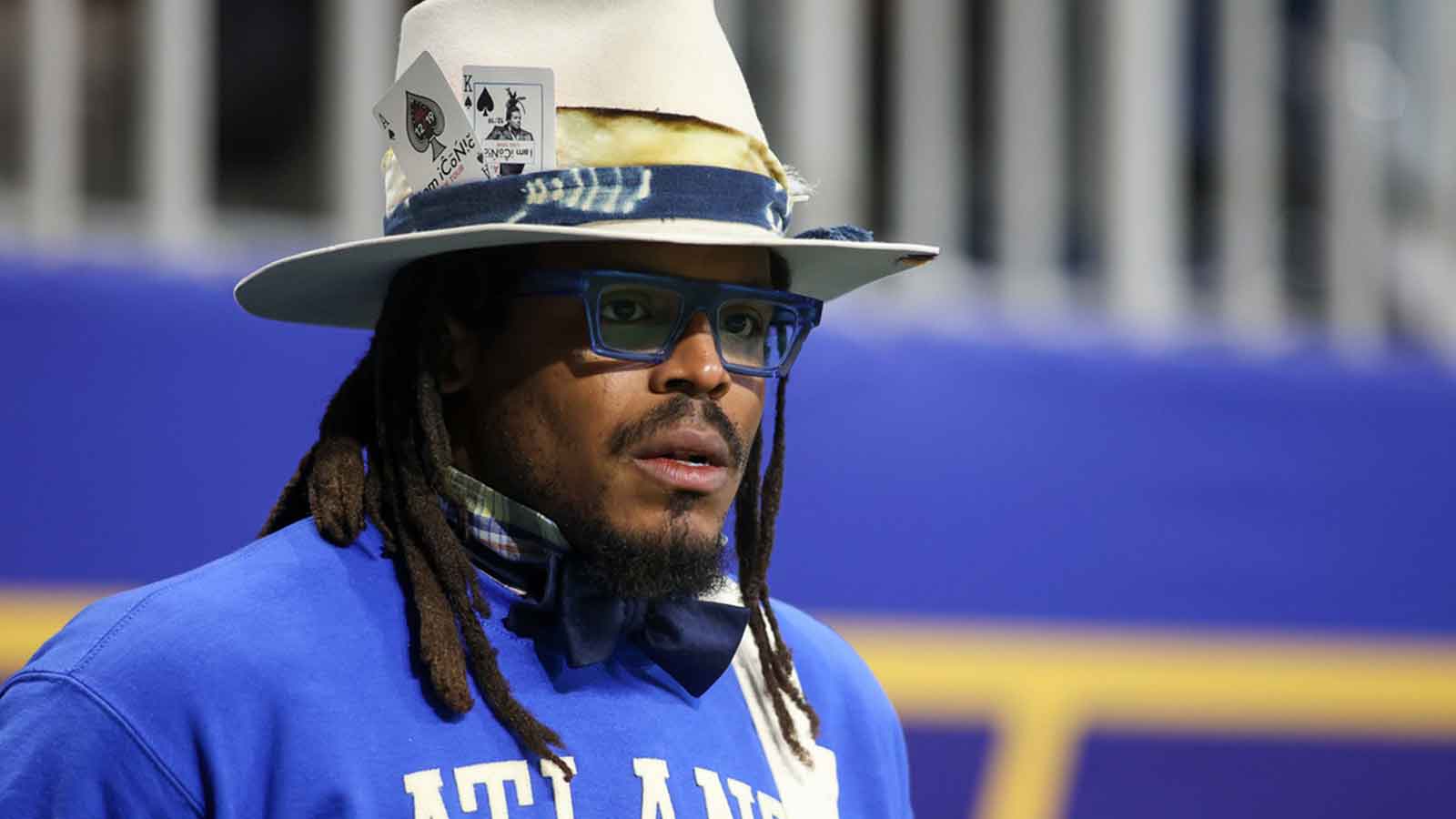In a game that went scoreless for over two hours, North Carolina Central quarterback Davius Richard led Team Gaither with an early touchdown to the 10-6 win over Team Robinson in the Allstate HBCU Legacy Bowl. The final score was less indicative of the lack of offensive talent, but the game showcased how dominant the upcoming draft class of HBCU defenders can be.
In terms of roster construction, Florida A&M and Jackson State led all universities with seven players each. Benedict and Fayetteville State led the Division II HBCUs with five players each. Every FCS HBCU, except Mississippi Valley State, had a player represented in the game. Florida Memorial, a member of the Sun Conference, was the only HBCU outside of the NCAA that had team representatives.
The HBCU Legacy Bowl is different than a typical college football game. For starters, both teams had two head coaches instead of one. South Carolina State's new coach Chennis Berry and Prairie View A&M's Bubba McDowell led Team Robinson. On the other side, Team Gaither followed the directions of Virginia Union's Alvin Parker and Howard's Larry Scott.
There were also important rule changes that helped NFL scouts get better evaluations on the players. At the end of each quarter, the game paused for a two-minute warning. Also, the team that finished the quarter on defense would receive the ball on offense in the next period. That forced the quarterbacks to lead a pressured two-minute drill down the field. There were also some standard NFL rules, like touching the offensive player while they're on the ground to rule them down.
Team Gaither started out with a bang on offense. Davius Richard, a two-time MEAC Offensive Player of the Year winner, calmly lead his squad down the field. He hit two big downfield shots to Winston-Salem's RJ Mobley and North Carolina A&T's Taymon Cooke. At the goal line, Richard ran a read option play, kept the ball, and ran in for the opening score.
Unfortunately, that would be the last time Richard entered the field of play. On the touchdown run, the bright NFL prospect seemed to injure his lower leg/ankle area. The game paused for over 10 minutes as the medical crew carted him off the field and got him to the hospital.
Once the game resumed, Florida A&M's Jeremy Moussa and Team Robinson took the field. Moussa's difficult day started on his opening possession as he nearly threw an interception to Morgan State safety Jordan Toles. He later sprayed throws on second and third down, ending their opening drive.
In place of Richard, Howard's Quinton Williams stepped onto the field. A two-time Second Team All-MEAC player himself, Williams eventually led Team Gaither down the field. Despite getting sacked, he threw a beautiful tight-window pass to North Carolina Central running back Latrell Collier. Williams got his team within the red zone in the first quarter two minute drill, but they could not capitalize. RJ Mobley had a touchdown in his hands, but he dropped the pass. After another dropped touchdown and an incompletion, Team Gaither settled on a field goal at the end of the opening quarter.
Neither team would score again until the fourth quarter. Not only would they not score, but neither team could even get into field goal range. Both teams spent much of the afternoon punting the ball back and forth, trying to play the field positioning game.
It's important to keep in mind how little time the offenses had to practice with each other. Unlike defense, football offenses are heavily predicated on precise timing at all positions. Offensive lines have to get a feel for how their quarterback likes to play, especially under pressure: same goes for their running backs.
Quarterbacks and wide receivers spend countless hours working on timing, determining when the receiver releases, gets out of their breaks, and where they like to receive the ball. While timing is certainly important in defense, it's much easier to just get in a stance, put a hand in the dirt, and rush the quarterback. Those are skills that translate no matter the situation.
Furthermore, none of the quarterbacks got into a rhythm, which is just a circumstance of the game. While the HBCU Legacy Bowl is an All-Star game of sorts, it's mainly an opportunity for scouts to get a look at their guys in a game scenario. That means everyone has to play. For example, not only did Quinton Williams have to get used to Latrell Collier, Taymon Cooke, and RJ Mobley, but he also had to throw to other receivers who didn't play in a previous drive.
Then, those receivers had to play reps with West Virginia State's Donovan Riddick, who is a completely different player and person from Williams and has his own style, likes, and dislikes when commanding an offense. There are just a bunch of different factors that made it difficult for the offenses to move the ball.
In the fourth quarter, Jeremy Moussa checked back into the game after Benedict's Aeneas Dennis and Edward Waters' Jyron Russell got their opportunities. The SWAC Offensive Player of the Year managed to salvage a decent offensive drive and got Team Robinson on the board for the first time of the night.
He completed a low pass to Grambling State's Lyndon Rash, who fell on the ground. In normal college rules, the play would have been called dead because Rash hit the ground. Team Gaither's defensive backs certainly thought that way as they walked away from the receiver, assuming the play was over. However, since they were playing with NFL rules, Rash got up and ran for the touchdown. Benedict's Tom Piccirillo missed the point after, so the score stayed 10-6.
On team Gaither's ensuing possession, they immediately went three-and-out. SWAC Defensive Player of the Year Isaiah Major was everywhere, not only on that drive, but the entire game. he and Alabama A&M's Zareon Hayes effectively shut down Team Gaither after the first quarter.
Team Robinson got the ball back, but quickly gave it back. Texas Southern's Jacorey Howard bursted free for a 10-yard gain to start the drive, but the offense quickly fizzled out. They punted back to Quinton Williams, who nearly lead Team Gaither to another score. Their offense got into field goal range before getting stopped. After the stop on third down, head coaches Parker and Scott took a timeout. They sent the offense out on fourth down, trying to draw the defense offsides to get a fresh set of downs, but the strategy didn't work.
As the clock drained, Williams tried to take another timeout. Unfortunately for them, it's illegal to take two timeouts in a row, so the officials called delay of game on Team Gaither. That backed them up five yards into a 45-yard field goal. Tuskegee's Ryan Duff pushed the ball wide left, leaving the score 10-6.
With the ball on their own side of the field, Jeremy Moussa had an opportunity to lead a game-winning drive. On a critical third down, Team Robinson's head coaches Berry and McDowell decided to run the ball, trying to catch the defense by surprise. That didn't work, leading to a fourth-and-four situation. On the final down, Moussa looked for his receiver, Florida A&M's Marcus Riley, but the pressure got to him. He threw an errant ball that hit the ground, ending their drive.
Team Robinson still had a chance, as they had yet to use their three timeouts. They stopped Team Gaither on first down, but on the next play, Latrell Collier iced the game with a big run right up the middle. Williams knelt as the clock ticked to zeroes, giving Team Gaither the 10-6 win.
After the game, NFL legends Mel Blount from Southern and Doug Williams of Grambling State presented the game MVPs. The aforementioned Zareon Hayes from Alabama A&M won the Defensive MVP award for registering four sacks during the game. Then, despite only playing the first drive, North Carolina Central's Davius Richard won Offensive MVP for constructing the best offensive possession of the day.

